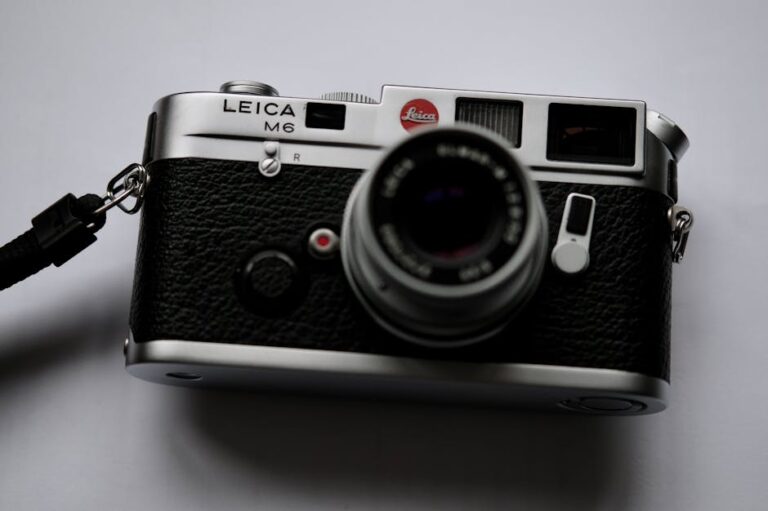So, it’s 2025, and you’ve got yourself an online shop, or maybe you’re thinking of starting one up. You’ve probably heard whispers, maybe even some loud shouts, about needing to get found on the internet. Everyone with a website wants to be at the top of Google, or at least somewhere people can actually see them without too much trouble. It just naturally follows, you know? And when you’re selling stuff, that’s like, ten times more true. Because if people don’t find your digital storefront, they definitely won’t be buying anything from it, which makes sense if you consider it for a moment. They just, well, can’t.
Now, a big question that normally pops up, maybe a little too often for some people, is whether you truly need to bother with both SEO and PPC. Like, isn’t one enough? Or do they sort of, like, work better together, which sometimes happens with things? It can all feel a bit much, especially if you’re just trying to get your products out there and deal with the day-to-day running of things, which, trust me, is already a whole pile of work on its own. It’s not usually a straightforward answer, which can be annoying, but it’s often the way these things go. So, let’s talk a bit about what these things even are and why, in this rather busy online world of 2025, they might just be exactly what your e-commerce site needs, or at least, a good portion of it. It’s certainly something to give some thought to, really.
The Online Shop Front: Why Being Seen Even Matters Today
Think about it this way. Back in the old days, you’d open a little shop on a main street, right? And people, they’d just sort of walk by, look in your window, maybe come inside. It was pretty simple, in that regard. Now, your shop isn’t on one main street; it’s on like, a million main streets all at once, but also, it’s tucked away in a tiny little corner of a huge, sprawling city that nobody actually knows the full map of. There are, literally, millions and millions of other online stores all trying to do the exact same thing you are. Some of them are really big, like the mega-malls, and some are just starting out, like you. And everyone is trying to sell something, from quirky artisanal crafts to, you know, everyday stuff you need for the house.
It is really true that just having a great product, or even a super cool website design, isn’t enough anymore, not really. It just isn’t. If people don’t know your online store exists, or they can’t actually find it when they search for what you’re selling, then all that hard work, the good products and pretty pictures, it’s just, well, mostly for nothing. Or at least, it’s not doing as much as it probably could be doing, which is a bit of a shame. It’s not about being the only shop; it’s about making sure you’re not invisible in the crowd. And that is, typically, where SEO and PPC sort of come into the picture, in different ways. They’re like your megaphone and your giant flashing sign, trying to catch someone’s eye in that really big, really busy digital city, which is a pretty good way of seeing it.
SEO for Your Store – The Slower Burn, But Oh So Good
Okay, so let’s talk about SEO, or Search Engine Optimization. What is that, you ask? Well, it’s basically a bunch of things you do to your website and around your website so that search engines, mostly Google, but others too, decide that your shop is important enough, or relevant enough, to show it near the top when someone types something in. Like, if someone types “best organic dog treats 2025” and you sell exactly that, you want your site to be one of the first things they see, not on page ten, where nobody normally ever goes anyway, let’s be honest about that.
This whole SEO thing, it is generally considered to be a bit of a marathon, not a sprint. You don’t just flip a switch and suddenly you’re number one. It takes time, patience, and some ongoing effort, which is just the way these things tend to work. But the cool part is, when it starts working, it’s like a gift that keeps giving. You get what’s called “organic traffic,” which means people are finding you naturally, because the search engine decided you were a good fit for their query. This kind of traffic, it’s normally seen as really good quality, because those people are actively looking for what you sell, and they sort of trust the search engine to show them good stuff.
So, what sorts of things go into this SEO business? Well, for one, it’s making sure the words people actually type into search engines are somewhere on your site. Like, in your product descriptions, in your blog posts, even in the names of your pages. You want to sound like you know what you’re talking about and you have what people want. Then there’s the whole “technical” side of things, like making sure your website loads super fast – nobody likes a slow website, not in 2025, definitely not – and that it works properly on a phone, because most people are browsing and buying on their phones these days, which is just how it is. And making sure other websites link to yours, if they’re good, reputable sites, that’s also a thing search engines look at, like a vote of confidence. It’s a lot of bits and pieces, often, but it all comes together to make your shop more findable, which is the main point of it, ultimately. And once you’re ranking well, that traffic can be, you know, free traffic, in a way, which is something every shop owner usually likes the sound of, right?
PPC for Your Store – Quick Wins and Getting Right in Front
Now, on the other side of the coin, you have PPC, or Pay-Per-Click. This is pretty much exactly what it sounds like: you pay money every time someone clicks on your ad. And these ads, they’re usually those ones you see right at the very top of Google’s search results, often with a little “Ad” label next to them, or maybe on social media feeds as you’re scrolling through your friends’ vacation pictures.
The big deal with PPC is speed, generally. If you’ve just launched a brand new product, or you’re having a flash sale that starts tomorrow and you need people to know about it now, SEO probably won’t get you there fast enough. PPC, though, you can set up a campaign, turn it on, and almost immediately, your ads are showing up for the specific people you want to target. You can say, “I only want my ad to show to people in this city, who are between these ages, and who are interested in dog treats,” which is pretty powerful stuff, being able to be so specific like that.
The benefits here are clear: immediate visibility, highly targeted traffic, and you can test out different products or offers really quickly to see what people respond to. You can also get a lot of data, really fast, about what search terms people are using, what kind of ads they click on, and so on. This stuff is good for, you know, learning. But there’s a catch, because there always is, isn’t there? The catch is, when you stop paying, your ads stop showing. Poof, gone. And if you’re not careful, it can get expensive, really, really fast, which is something you definitely want to keep an eye on. You have to be smart about your budget and how you bid for those ad spots, because lots of other people want them too. So, while it offers that immediate blast of visitors, it’s a constant cost, usually, that needs pretty careful management. It’s like renting prime retail space for a while; you pay for the duration, and when you stop, you’re out.
So, Which One? Or Maybe Both? Thinking About What Works
This is the part where most people get a bit stuck, you know? Like, do I pick the slow-and-steady thing, or the quick-and-costly thing? It’s a pretty common dilemma, often. And the not-so-simple answer for e-commerce sites in 2025 is: it’s usually not an either/or situation. It’s normally more about finding the right mix for your particular store, right now, and what you’re trying to achieve, which can change over time.
Think about it like building a house. SEO is like building a really solid foundation and the main structure. It takes time and effort, but once it’s up, it’s there, providing a stable home for your shop for the long haul. It helps you build credibility and a sort of natural authority in your specific corner of the internet, making people sort of, you know, trust you more over time because you keep showing up in the regular search results.
PPC, on the other hand, is like adding temporary scaffolding or maybe a big banner for a grand opening. It gets immediate attention, helps you move things quickly, and can be adjusted rapidly if you need to. Maybe you’ve got a new product line and you want to get eyeballs on it ASAP, or you’re trying to clear out old stock with a limited-time deal. PPC is perfect for those quick, focused pushes. It’s also super useful for testing things. You can run an ad for a product that doesn’t even have an SEO strategy yet, see if people click on it, see if they buy. If they do, then you know it’s something worth putting some more long-term effort into, which is a neat way of figuring things out.
The real trick for many successful e-commerce businesses is to sort of, generally speaking, use both, but differently. You might use PPC to get immediate traffic and sales, especially when you’re just starting out or for specific campaigns, while also putting effort into your SEO so that over time, you build up that organic, “free” traffic. That way, you’re not entirely dependent on paying for every single click forever, which can get really expensive if you think about it. The two strategies, they can sort of help each other out, too. Data you get from your PPC campaigns – like what search terms actually result in sales – can give you really good ideas for what keywords to focus on for your SEO. And if your SEO is already strong for certain keywords, you might not need to pay for ads for those same keywords, which saves you money, which is always nice. So, a lot of people combine them, and that’s usually considered a good way to go.
What to Watch Out For When Doing All This Stuff
So, you’re leaning towards doing both, which for most e-commerce sites is, generally speaking, a really good idea. But there are some things you just have to keep an eye on, always. The internet, it’s not a static place, you know? Search engines, they change their rules and algorithms all the time, sometimes with big shifts, sometimes with little tweaks. So, what worked for SEO last year might need a bit of adjustment this year. You have to, sort of, normally, stay on top of those changes or your hard work might not, you know, keep paying off as well.
Then there’s the money side, especially for PPC. It’s really easy to just, like, throw money at ads and not see much return if you’re not careful. You need to be watching your ad spend, looking at what’s actually converting into sales, and turning off the stuff that isn’t. Don’t just set it and forget it, because that’s how people lose a lot of cash, which nobody wants. It’s about being smart with your resources, even if it feels a bit complicated at times.
And don’t expect magic overnight with either of these. Especially with SEO, you really are playing a longer game. It can be discouraging when you don’t see results right away. But if you keep at it, and you’re putting out good products and useful content, it usually does start to click into place. It’s about building something sustainable, something that can keep your shop running for many years to come, which is the big goal, really. In 2025, with so much competition out there, just having a digital presence is only the first step; making sure people can actually find that presence, that’s where SEO and PPC generally come into their own.
Frequently Asked Questions (FAQ) about E-commerce, SEO, and PPCQ1: Do e-commerce sites really need both SEO and PPC in 2025, or can I just pick one?
A1: Generally speaking, for most e-commerce sites looking to grow and stay competitive in 2025, using both SEO and PPC is often the most effective approach. SEO builds your long-term, organic search visibility, kind of like laying a solid foundation, while PPC gives you those quick, targeted bursts of traffic and sales, which is useful for short-term goals or testing. Trying to rely on just one usually means you’re missing out on some pretty big opportunities for getting customers, which isn’t what anyone wants.
Q2: My e-commerce site is brand new. Should I start with SEO or PPC first?
A2: If your e-commerce site is just getting off the ground, a lot of people find it a good idea to start with PPC. Why? Because PPC can get you immediate visibility and traffic, which can mean quicker sales and also some initial data about what your customers are looking for. While you’re getting those quicker wins, you should also be putting effort into SEO, as it takes longer to show results but is super important for your long-term, sustainable growth and building a steady flow of visitors without having to pay for every single one. It’s a bit of a balancing act, really.
Q3: How much budget should I set aside for PPC for my e-commerce site?
A3: The amount of money you should put into PPC for your e-commerce site can vary, quite a bit, actually. It totally depends on what you’re selling, how much competition there is, and what your profit margins look like. Some businesses start with a small test budget, maybe a few hundred dollars a month, to see what happens, and then slowly ramp it up. It’s really important, generally, to track your ad performance closely and make sure you’re getting a good return on your spending, because if you’re not, you’re just sort of throwing money away, which isn’t good. You want to make sure the ads are bringing in more money than they’re costing you, which is the main point of them.
Q4: Can doing SEO for my e-commerce site help my PPC campaigns too?
A4: Yes, normally, putting effort into SEO for your e-commerce site can definitely help your PPC campaigns. For one thing, if your site is well-optimized for SEO – meaning it loads fast, has clear content, and offers a good user experience – that can sometimes lower the cost of your PPC ads because search engines see your site as more relevant and better quality. Also, the words and phrases you figure out are working really well for organic search traffic can give you really good ideas for what keywords to target in your paid ad campaigns, so they sort of feed into each other, you know?
Q5: What’s the biggest risk if an e-commerce site ignores both SEO and PPC?
A5: If an e-commerce site completely ignores both SEO and PPC in 2025, the biggest risk is, pretty simply, invisibility. In such a crowded online marketplace, without either of these ways to get found, your site is just going to be one tiny speck in a really, really huge ocean. People won’t know you exist, they won’t find your products when they search, and ultimately, you won’t get many, or even any, sales. It’s like having a great shop but setting it up in a back alley nobody ever walks down; it just won’t work out as well as it could, which is a bit of a problem.
















